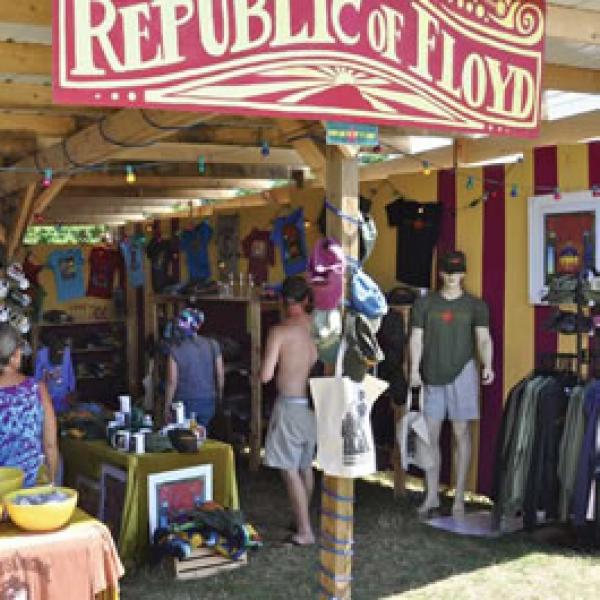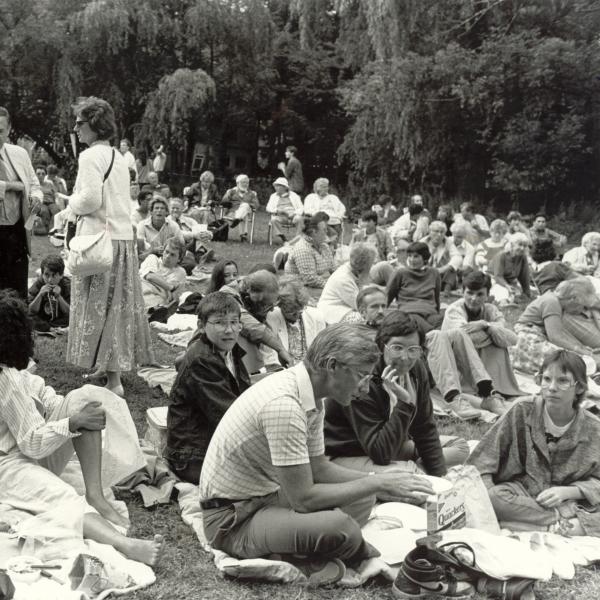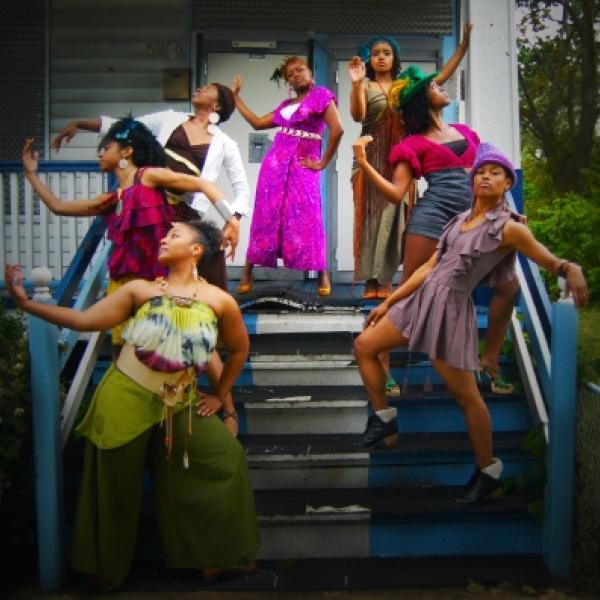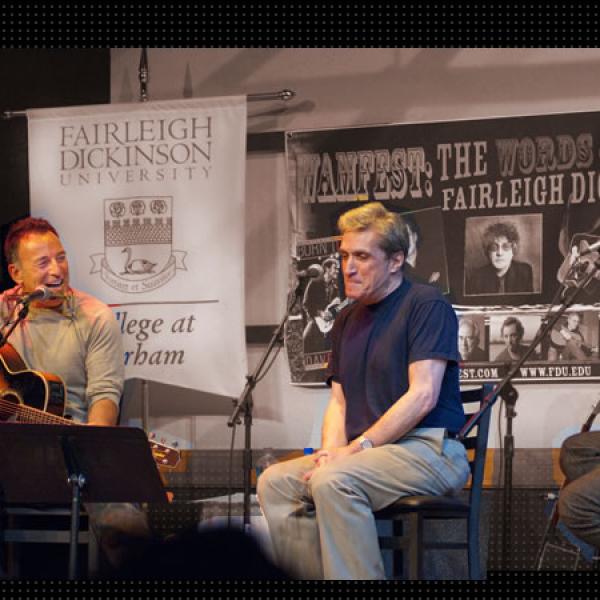Small But Mighty
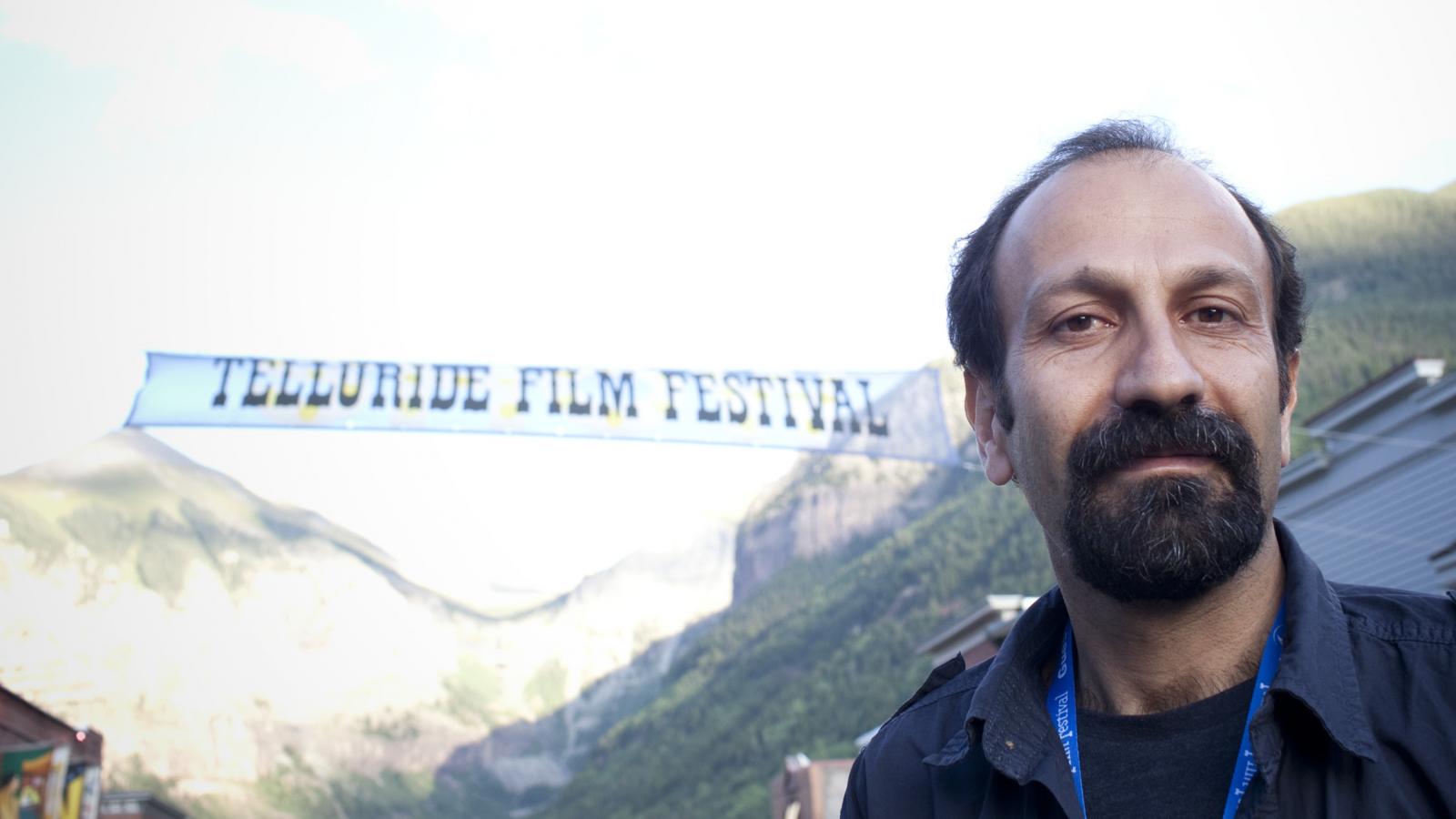
Director Asghar Farhadi at the 2011 Telluride Film Festival for the showing of his film A Separation. Photo by Pamela Gentile
Opening Credits
Telluride Film Festival (TFF) should not be a success. For one thing, despite having paid for tickets well in advance, you don't learn which films are playing until opening day, and even then some slots remain "TBD." It's also quite a feat of travel to get to the box canyon in which the town of Telluride is inconveniently situated. And did I mention that one of the festival's ten venues is only accessible by ski lift? Yet for the 6,000 film lovers who attended the 38th annual event this year, this was all part of the charm; every single filmmaker, passholder, volunteer, and student braved Telluride for the simple joy of being shoulder-to-shoulder with people who love the movies as much as they do.
TFF was the brainchild of Stella and Bill Pence, owners of the town's Sheridan Opera House, and James Card, who in 1973 was the chief curator of the motion picture collection at the George Eastman House. According to legend, Card remarked that the Sheridan would be a great place to screen films, and on August 30, 1974, the first Telluride Film Festival debuted, drawing a crowd of approximately 350 visitors and locals. With Pacific Film Archive curator Tom Luddy, they programmed 25 features and collections of short films that year, and presented three tributes -- to silent film star Gloria Swanson, and directors Francis Ford Coppola and Leni Riefenstahl.
Today the format remains essentially the same: a slate of world or North American premieres, a program of vintage films, and three tributes, which in 2011 went to George Clooney, Tilda Swinton, and Pierre Étaix. The venerable film magazine Sight and Sound received the festival's Special Medallion. Since 1988, TFF has also invited a "guest director," an artist from any discipline who has a love of cinema -- this year was Brazilian musician Caetano Veloso -- to choose their own selection of festival films.
Many of the movies that premiere at TFF go on to be the darlings of the winter awards season. Buzz is already building around two films from this year's festival: Alexander Payne's The Descendants, and Michel Hazanavicius' The Artist, which according to The Daily Beast, "may be the first silent film to be nominated for the Best Picture Oscar since The Patriot in 1929."
TFF also offers educational opportunities for young people interested in film. The City Lights Project and Student Symposium grant high school and college students festival passes and special access to invited filmmakers and other guests. Film Lab, a partnership with the UCLA School of Theater, Film, and Television (UCLA-TFT), brings graduate-level film students to the festival to meet with industry professionals. Several screenings and guest artist talks are offered free-of-charge to allow Telluride locals to participate.
While it's easy to see why TFF -- which received a Fiscal Year 2011 NEA grant -- is one of the world's premiere film festivals, what makes people show up year after year, not knowing exactly what they're going to see or who is going to be there? I spoke with festival director Julie Huntsinger, filmmaker Justin Lerner, and festival volunteer Jeffrey Middents to find out.
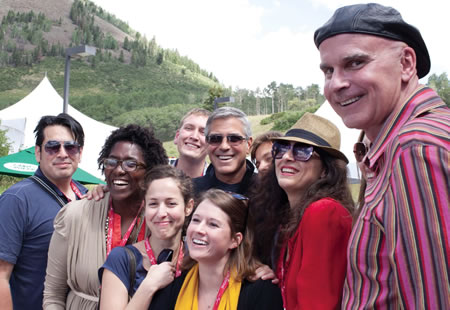
2011 Telluride tributee George Clooney (center) meets with UCLA graduate film students as part of the festival's Film Lab program. Photo by Pamela Gentile |
The Festival Director
When Julie Huntsinger joined Tom Luddy and Gary Meyer as one of the directors of the Telluride Film Festival in 2007, she was already a fan, having been one of the thousands of film lovers who had made the trek to Colorado for the event. She joined the festival after a career that comprised various roles in the film industry, including a stint working for Francis Ford Coppola. Below, Huntsinger discusses the festival.
Five words that describe Telluride Film Festival...
"Intimate" is really an important word. "Pure" is a word that we are proud of that gets thrown around a lot. One of my favorite quotes about us was "small but mighty." There's a lot of passion and loyalty. The thing about the passion and loyalty is that it's in the workers as well as the guests. It permeates every single moment that you're there.
On what makes a film a Telluride film...
We say it has to be extraordinary. It has to be just good. I think somebody was trying to use the indie label or the unusual or esoteric, or you know all of these really different words that don't fit because every time somebody will bring up an example of one of those films, we can have ten more that don't fit any of those labels.... Sometimes it will be irrefutably controversial...and sometimes people hate what we've just shown them. That's an okay reaction too. If it's gotten people really thinking, and it's very thought-provoking, then that's also high on our list of accomplishments. A very good film sometimes will make you extremely uncomfortable.
I feel like it really is alchemy because it's just me, Tom, and Gary watching movies and deciding what we want to show. And there's this balance that we often talk about. But we're merely reflecting the state of cinema.
What's playing at Telluride this year? Shhh, it's a secret...
[Keeping the films a secret] started out as a pragmatic exercise. In one of the early festivals, someone had committed to come and they weren't able to. There's nothing worse than saying something is going to happen and it doesn't. The fact that it bothers us as much as it does speaks more to who we are than anything else, because I think it's a fact of life for the rest of the world. So we said, "Let's say, 'Show up. We'll prove to you every year that it's worth it to get here, but we're just not going to tell you what's coming.'" We really go to great, great effort to keep the secret a secret. We've uninvited films in the past where the secret's got out too much because it's something that people really appreciate. It's part of the fun!
On presenting vintage films as part of the festival...
You can't really criticize or evaluate or appreciate film without having the understanding and knowledge of what has come before.... We show an older film and people say, "Well, everybody does that style of editing or that way of introducing a new character." We will say this was the first time that that was really happening. If you see the right ones, if you see the really good ones, you say, "No wonder people love this. No wonder this medium caught on the way it did."
The value of volunteering...
[Our staff] is between 15 to 20 year-rounders...and it swells to about 650 [people] by the time the festival is fully underway, and a huge percentage of that is volunteer. Many of them have been coming as long as the festival has been in existence. People love to work this festival.... It's a chance for folks to get together with old friends because they're so close, everybody who works on the festival. We have such good word of mouth that each year we have a whole new round of applicants. And we're seeing many kids of staffers coming back in good strong roles.
It could only happen at Telluride ...
This year we had a film by Eryk Rocha called Passerby. He's Brazilian, and the film was in Portuguese.... The company in Brazil that was handling prints of the film sent Telluride the wrong print; it did not have English subtitles. For [Rocha], it was devastating -- the moment in the film where the dialogue was supposed to be coming up in English at the bottom and it wasn't. He was beside himself....
We just kept showing it. It could have been this just awful moment. Nobody left. They stayed until the end and loved it. And then we had this funny little piece written in one of the [newspapers] saying, "That's how hardcore and dedicated Telluride is -- they're not even going to put English subtitles."
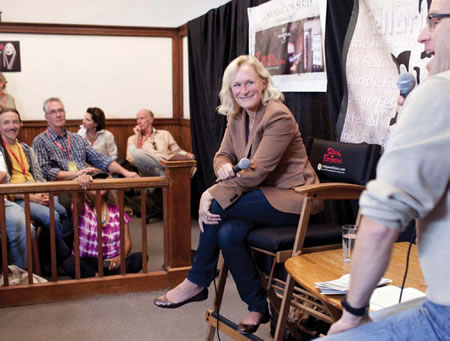
Actress Glenn Close discusses her new film Albert Nobbs with Los Angeles Timesreporter John Horn during a guest artist talk at Telluride. Photo by Pamela Gentile |
I really think that people who love movies have a space in their heart, it's an extra chamber of emotion that you almost have to have to really love film. When you see a great movie, you're going through quite a few emotions. And so our audience is bound to be a special kind of audience. And I really think that you see that over and over again. I just wouldn't trade them for anything.
"Anybody can come to Telluride."
It makes me honestly really sad when somebody will [ask], "Can anybody come to Telluride?" You don't have to be any [specific] career, job, socioeconomic status. If you can even just get yourself to Telluride, sometimes you can go to the things that are in the library. You can go to the outdoor screenings. You can [attend] an individual screening or two. I do want anybody in the world that has a desire to come and celebrate film to come to Telluride and enjoy the festival.
That's a wrap...
Cinema is an important art, and it's going to take work and effort to preserve quality cinema. We have to support the cinematic arts by doing things like coming to Telluride and supporting independent cinema in your community.... I don't think anybody wants to see [moviegoing] reduced to everybody looking at it on their computer screens alone. I think Joseph Campbell's idea of joyful participation in a community, looking at the arts together is incredibly important. There's something intangible about just sitting in a dark room. You can't replicate that at home. You really can't.
Find out more about the Telluride Film Festival from filmmaker Justin Lerner and longtime festival volunteer Jeffrey Middent.


